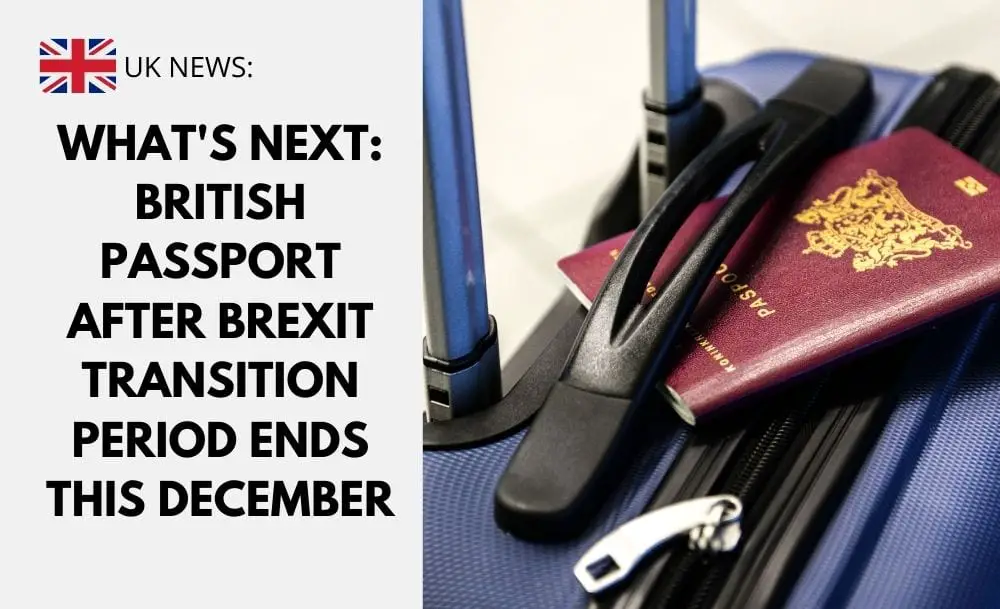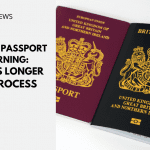What’s Next: British passport after Brexit transition period ends this December

British holidaymakers wishing to travel on European holidays from January 2021 are set to face new entry conditions in a number of destinations. The Foreign, Commonwealth and Development Office (FCDO) has outlined new updates, including some major passport changes, for nations including Germany, Spain, Portugal and Italy.
Regardless of whether or not a deal is struck on future ties, acute changes are in store once the transition period expires on 31 December 2020. One of the biggest changes Britons will encounter is the impact on travel to Europe. As the country prepares for its departure, with the transition period coming to a close on 31 October 2020, the FCDO has listed some new changes travellers should be aware and be prepared for.
The government body has updated its entry requirement regulations for a number of hotspots including Germany, Iceland, Italy, Hungary, Portugal, Slovenia, Slovakia and Spain.
For those with holiday plans to any Schengen area countries, visas will not be required so long as the trip is for a maximum of 90 days or less within a 180-day period.
The FCDO explains: “You will be able to travel to countries in the Schengen area for up to 90 days in any 180-day period without a visa for purposes such as tourism. This is a rolling 180-day period.”
Trip to the Schengen Zone

The Schengen Area is a group of countries within Europe which have eliminated internal border controls.
As of the moment, the Schengen area consists of 26 European countries: Austria, Belgium, Czech Republic, Denmark, Germany, Estonia, Greece, Finland, France, Italy, Latvia, Lithuania, Luxembourg, Hungary, Malta, Netherlands, Poland, Portugal, Slovenia, Slovakia, Spain, and Sweden, along with Iceland, Liechtenstein, Norway and Switzerland.
Both EU and non-EU citizens may freely travel within the Schengen area and are only checked on entry to the area and when crossing an external border.
The FCDO further clarifies: “If you’re travelling to Spain, previous visits to the Schengen area within the 180 days before your date of travel would count against the 90-day limit. If you are travelling visa-free to Spain and to other countries in the Schengen area, make sure your whole visit is within the limit.”
If you’re a tourist, you will not need a visa for short trips to EU countries, Iceland, Liechtenstein, Norway and Switzerland. You’ll be able to stay for up to 90 days in any 180-day period.
Travellers who hope to stay longer within the Schengen area are required to consult each individual countries new requirements. You may need a visa or permit to stay for longer, to work or study, or for business travel.
“The European Commission has not yet set out how the limit of 90 days in any 180-day period for visa-free travel will be implemented for those who are already travelling in the EU or Schengen Area on 31 December 2020,” adds the FCDO.
Related posts:
- The New British Passport After Brexit: The Blue British Passport
- A Guide to Student Visas Post Brexit
- What to Do Post Brexit as an EEA National – EU Citizens in UK after Brexit
Passport requirement for EU travel
Along with the new visa regulations, British nationals must keep an eye on their passport’s expiration date.
To ensure uninterrupted vacation, your passport has to meet the following conditions:
- Have at least 6 months left
- Be less than 10 years old (even if it has 6 months or more left)

“From 1 January 2021, you must have at least 6 months left on an adult or child passport to travel to most countries in Europe (not including Ireland),” states the FCDO.
“If you renewed your current passport before the previous one expired, extra months may have been added to its expiry date. Any extra months on your passport over 10 years may not count towards the 6 months needed. Check your passport is valid for travel before you book your trip. You will need to renew your passport before travelling if you do not have enough time left on your passport.”
Passports are so much more than a travel document. Owing to international relations and global pride, some citizens can save money and travel without the need for a visa simply because of the passport they carry. Passports allow their holders more freedom and unrestricted international access than others.
Other changes to come include the end of European Health Insurance Cards (EHIC) for UK citizens. This means travellers should take out “appropriate travel insurance with healthcare cover” for any European holidays after January 1.
What are your thoughts on travelling after Brexit? Are you worried or unsure about travel to Europe after the transition period? Comment below.
IaM can help with your visa application to the United States, the UK & other countries
If you need help with a US visa, a UK Visa, or visa to Europe, including help with appointment booking obligations, IaM can help.For more information and advice on US immigration, UK immigration law and US visa applications Or If you need any help or assistance please, reach out to your Visa Coordinator at IaM.
- Preserving Lake Como: Lake Como Plans Daytripper Fee - 20 April 2024
- EU Proposes Free Movement For Young UK Nationals Post-Brexit - 18 April 2024
- UK Starts Electronic Visa Rollout - 17 April 2024








